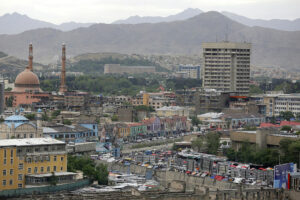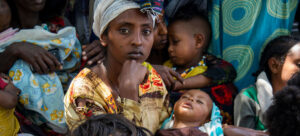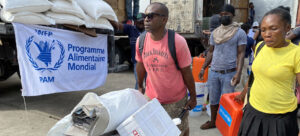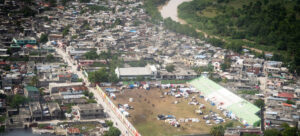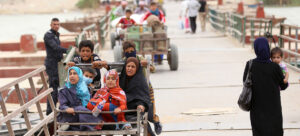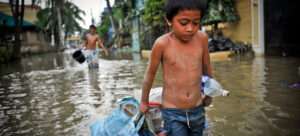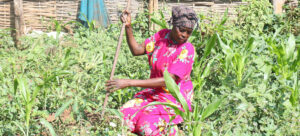“He condemns this terrorist attack which killed and injured a number of civilians… He stands in solidarity and wishes a speedy recovery to those injured”, UN spokesperson Stéphane Dujarric told journalists.
Mr. Dujarric underscored that it was the responsibility of the de-facto authorities to protect civilians and civilian infrastructure, including the airport.
‘Horrific terrorist attack’
Later in the day at the Security Couincil stakeout, the UN chief personally expressed “in the strongest possible way”, his “total condemnation about the horrific terrorist attack in Kabul”.
He sent condolences to the families of all those who perished, both Afghans and those who were there to help them, noting that they “died serving the lives of others”.
“I have also asked my Special Representative [Deborah Lyons] to convey directly to Kabul my deep condolences to the Afghan people”, Mr. Guterres said.
According to media reports, suspected suicide bombers struck the Kabul airport gates with at least two explosions, leaving at least 60 people dead, including children, and 140 other wounded.
Dashing hopes, taking lives
The attacks occurred amid crowds outside the airport where thousands of Afghans are gathering with the hope of leaving the country now under Taliban rule.
“This incident underscores the volatility of the situation on the ground in Afghanistan but also strengthens our resolve as we continue to deliver urgent assistance across the country in support of the Afghan people”, added Mr. Dujarric.
The spokesperson said that the UN is currently doing a headcount, but as of now, there is no indication of UN personnel causalities – although some staff were thought to be around the airport compound.
Afghans need more help
The UN High Commissioner for Refugees, Filippo Grandi, also reacted to the terrorist attacks.
“Today’s horrible bomb attack in Kabul, in addition to everything else, should make us all even more determined not to leave the Afghan people alone”, he said on his official twitter account.
Mr. Grandi added that now is the time to do more for Afghans at risk and in need, and for those who are displaced or refugees in neighbouring countries.
Meanwhile, General Assembly President Volkan Bozkir said that violence, terrorism, an unstable security situation and growing civilian casualties have “strong potential” to derail and Afghan-led, Afghan-owned peace and reconciliation, “which is the only path to enduring peace and stability”.
“Protection of civilians and rights and freedoms of Afghan people – in particular women and children must be a priority”, he stated. “This is a sine qua non of sustainable peace and inclusive development”.
